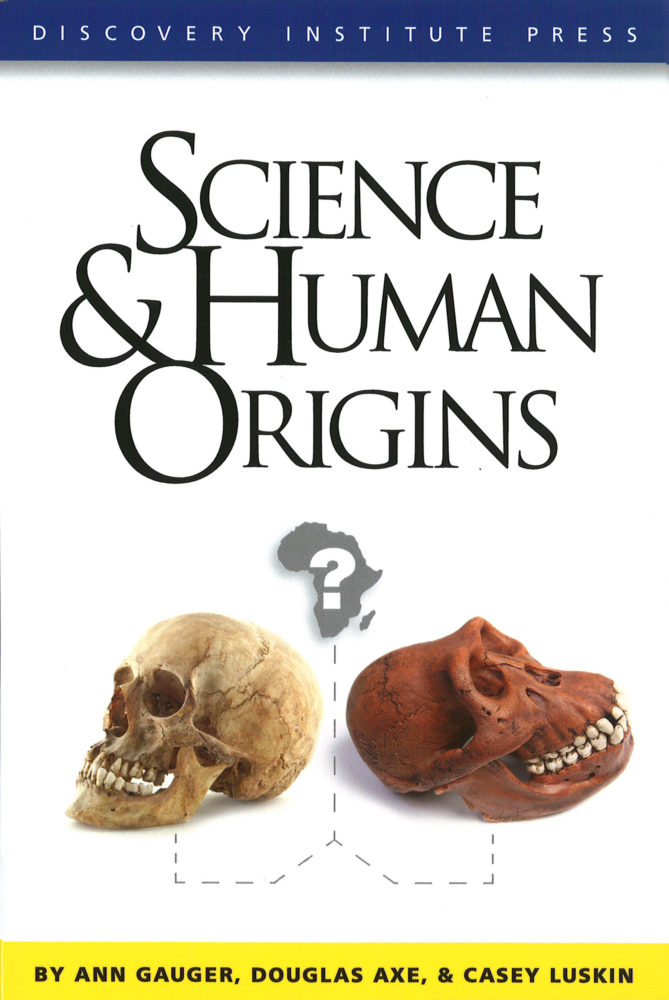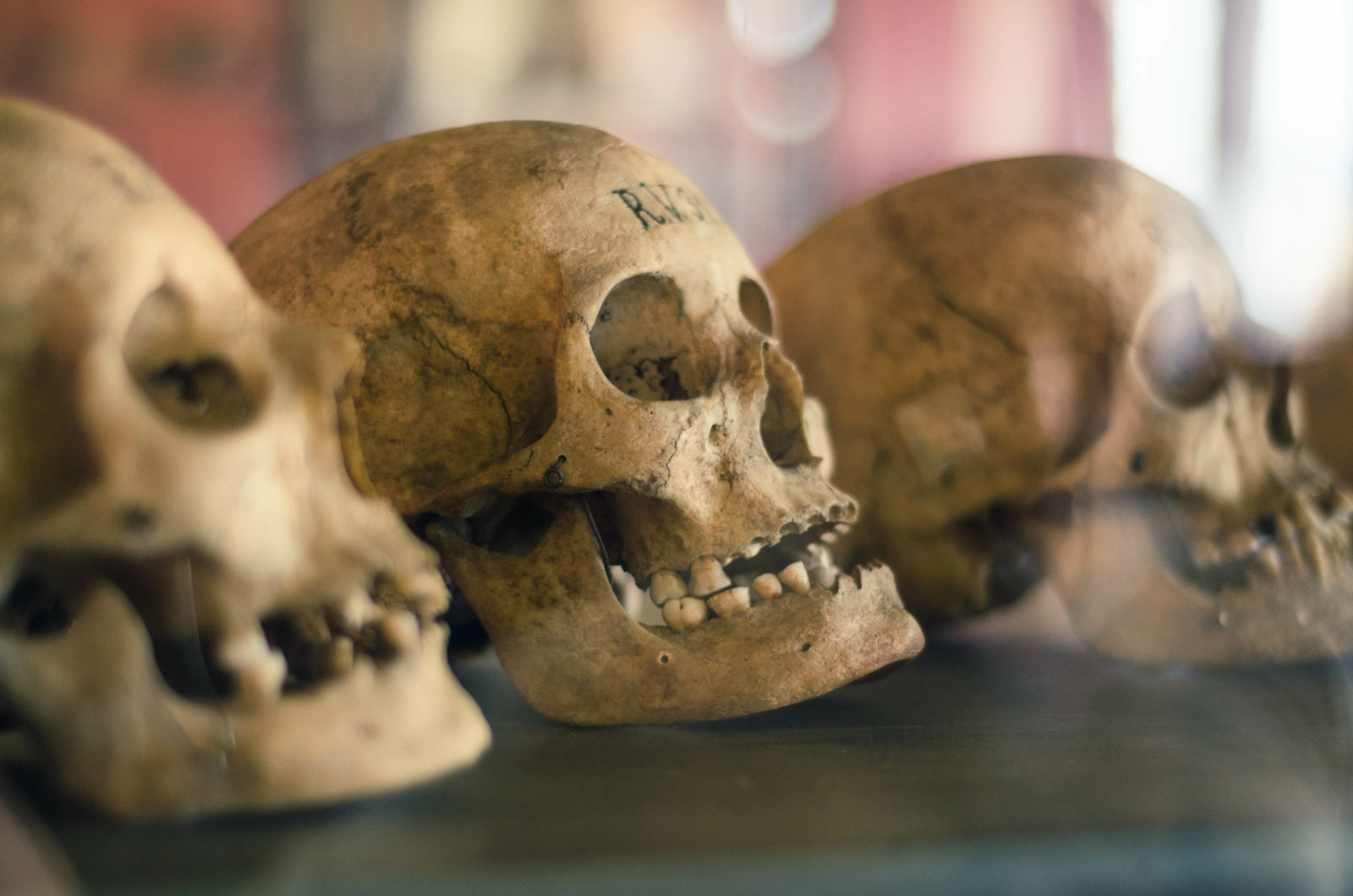Science and Human Origins
More at Discovery.orgScience & Human Origins, a provocative book from Discovery Institute Press, boldly addresses some of the most popular evolutionary arguments pertaining to controversial claims that humans and apes are related through common ancestry.

In Science & Human Origins three scientists challenge the claim that undirected natural selection is capable of building a human being. The authors critically assess fossil and genetic evidence that human beings share a common ancestor with apes, and debunk recent claims that the human race could not have started from an original couple.
The three scientists — molecular biologist Dr. Douglas Axe, developmental biologist and geneticist Dr. Ann Gauger, and earth scientist Casey Luskin investigate some of the most pressing questions in the human origins debate.
- Dr. Axe is a molecular biologist and Director of Biologic Institute, and received his Ph.D. from Caltech. He explains why the Darwinian mechanism cannot produce complex multimutation features under reasonable timescale. According to his research, there is dramatically insufficient time allowed by the fossil record to evolve observed biological differences between humans and apes by random mutation and natural selection.
- Dr. Gauger, a Senior Research Scientist at Biologic Institute who holds a Ph.D. in developmental biology from the University of Washington and did her post-doctoral fellowship at Harvard University, then tackles the hottest topic in the debate over human origins—the genetic evidence and claims that it proves humans could not have been descended from an initial pair. According to Gauger, those who argue that genetics negates the possibility we are all related through an initial pair of humans have overstated their case. Dr. Gauger concludes on the basis of population genetics that the genetic evidence is quite compatible with the view that humans are descended from an original pair.
- Casey Luskin, who earned his M.S. in Earth Sciences from the University of California, San Diego and conducted geological research at the Scripps Institution for Oceanography, then looks at the fossil evidence, and explains why an objective assessment of the fossil data does not support the view that humans evolved from ape-like ancestors.
Science and Human Origins is a book about science yet its importance lies no less in anthropology. Not anthropology the social-science field, but the ageless enigma of what a man is. Are you a clever animal, or something incomparably other? In his Introduction, John West cites G.K. Chesterton who wrote that, “Man is not merely an evolution but rather a revolution.” That frames the subject concisely.
If the book’s message can be crystalized in brief, it is that the scientific mystery of man’s origins remains very much a mystery. Aggressive advocates of scientism — and some equally aggressive theistic evolutionists who claim to disavow scientism — insist that evolutionary biology has got us all figured out. But this is a huge bluff.
Of concern to the authors of Science and Human Origins is the attempt by dogmatic Big Science to insist on a simplistic and false account of where we came from, an account to be spat back automatically upon request by all students and adults. With parents, teachers and legislators pressing successfully for academic freedom in public schools, the book could hardly be more timely.
The debate over common ancestry and human origins is in full swing in the scientific community. If you want to fully understand this issue, you need to read this book.
